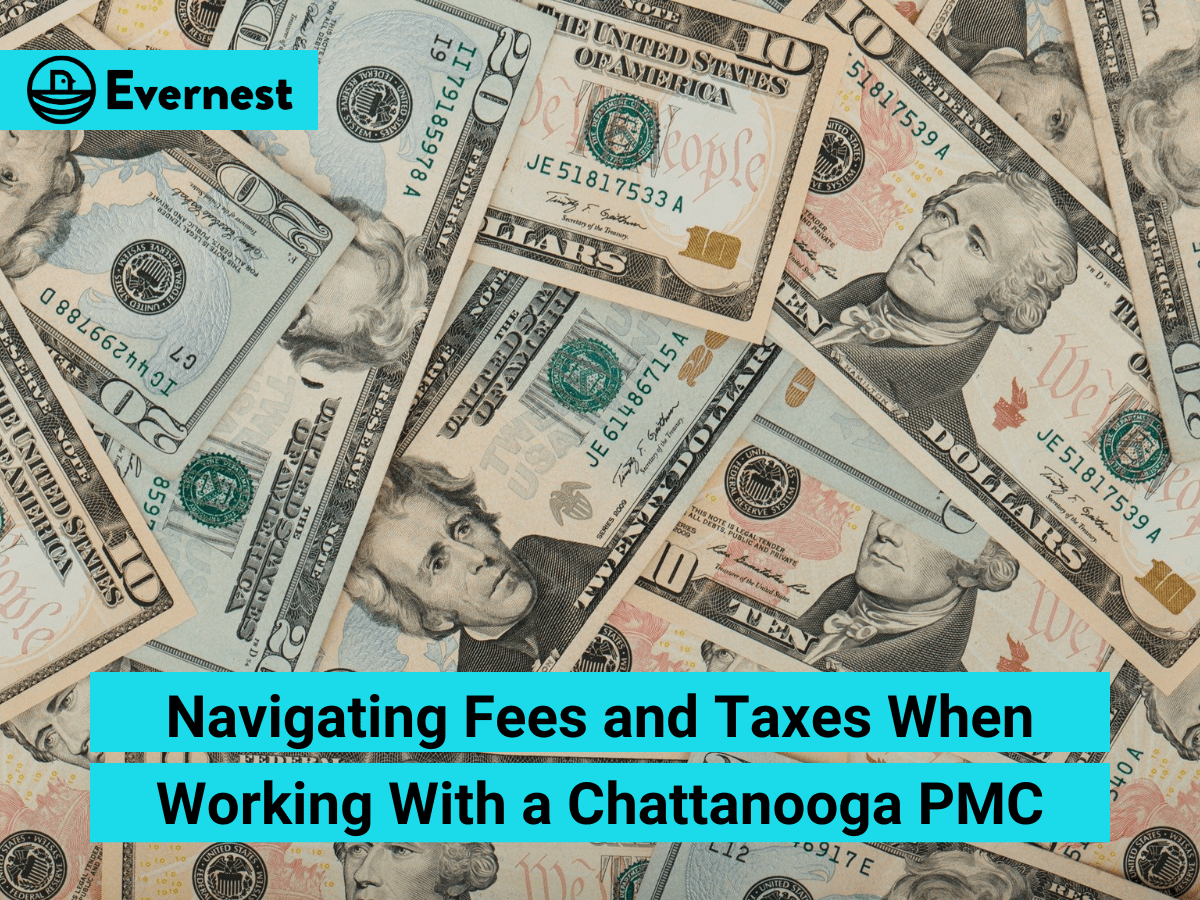Being a landlord comes with challenges and responsibilities, and there is always something that needs attention, including the financial impact of fees and taxes. By the end of this article, you will have a clear understanding of how to navigate fees and taxes when working with a Chattanooga property management company.
The Importance of Financial Preparedness
As a landlord, you need to have a solid understanding of your financial situation, including your income, expenses, and potential taxes, so you can make informed decisions and avoid surprises. Whether you choose to hire a Chattanooga property management company or handle everything yourself, being financially prepared is the first step to success.
One key aspect of financial preparedness is having a dedicated bank account for rental income and expenses so you can easily track cash flow, monitor expenses, and simplify tax preparation. Additionally, having a separate account adds professionalism to your rental business, making it easier to provide financial records when needed.
Another important factor is creating a contingency fund for unexpected expenses. Rental properties can come with surprises such as sudden repairs, vacancies, or legal fees. By setting aside a portion of your monthly rental income, you create a safety net, providing you with peace of mind and ensuring that your rental business remains financially stable in the long run.
Understanding Property Management Fees
Property management fees can vary from company to company and can impact your profitability. It is important to have a thorough understanding of what these fees cover and how they are calculated. Some common property management fees include leasing fees, management fees, and maintenance fees.
Leasing fees are charges incurred when a property management company secures a new tenant for your rental property. These fees typically cover the cost of marketing the property, screening potential tenants, and preparing lease agreements. It is essential to understand the leasing fee structure, as some companies may charge a flat rate while others charge a percentage of the rental income.
Management fees cover services such as rent collection, property inspections, and handling maintenance requests. When reviewing management fees, consider the level of service provided by the property management company. Some companies offer additional services, such as financial reporting and eviction assistance, for a higher management fee. Understanding the scope of services included in the management fee can help you determine if it aligns with your needs and budget.
Property-Related Taxes
As a property owner, you are responsible for various taxes, including property taxes and income taxes. If necessary, consult with a tax professional. who can ensure you are compliant with all tax obligations.
Property taxes are used to fund public services such as schools, roads, and emergency services in the community where your property is located. The amount you owe can vary depending on factors such as the size and location of your property, as well as any tax exemptions or deductions you may be eligible for.
The rental income you receive is generally considered taxable income although there are deductions and expenses related to your rental property that you can usually claim. Keep detailed records of your rental income and expenses so you can accurately report them on your tax return.
Tracking and Reporting Expenses
By diligently recording all expenses related to your rental properties, you can accurately assess your profitability and maximize your deductions come tax season. Additionally, proper expense tracking will allow you to identify any areas of overspending and make adjustments to improve your financial performance.
Working with Tax Professionals: Hiring a Tax Professional
For you as a landlord, navigating the intricacies of property-related taxes can be daunting. Hiring a tax professional who specializes in real estate taxation is highly recommended. Spending money on professional advice can save you money and give you peace of mind knowing your tax obligations are being handled by an expert.
Local Tax Regulations and Variations
Different municipalities may have different tax rates, exemptions, and reporting requirements, so it’s essential to familiarize yourself with the tax regulations in your area to avoid potential penalties or unnecessary expenses. Your local tax authority or a tax professional can provide you with the necessary information to ensure compliance.
Conclusion, Seeking Professional Guidance, and Additional Resources
In conclusion, navigating fees and taxes as a landlord can be challenging, but with proper preparation, understanding, and professional guidance, these challenges can be overcome. By being financially prepared and understanding property management fees and your tax obligations, you can successfully navigate the complex world of fees and taxes when working with a Chattanooga property management company.
Remember, the information in this article may vary depending on your specific circumstances. Always consult with a qualified professional or seek additional resources for personalized advice related to your unique situation. With the right knowledge and assistance, you can confidently navigate fees and taxes as a landlord and ensure your rental properties remain a profitable investment.
Looking for a Chattanooga property management company to help out? Contact our local team today!


